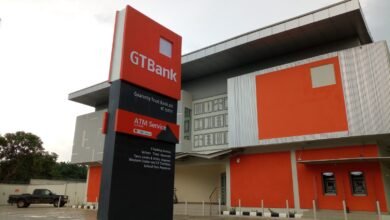
Faulu Microfinance Bank has set aside Ksh.3 billion as a loan facility to help struggling businesses in the country get back on their feet following the coronavirus disruption.
The businesses which stand to benefit from the plan are Small and Medium Enterprises (SMEs), agribusiness, Chamas and group customers.
According to the lender’s Managing Director and chief executive Apollo Njoroge, the small businesses in the country will receive the grant due to their unique financial needs as they struggle to get back on their feet amid the dire economic situation castigated by the pandemic.
“Our goal is to help small businesses who form the bulk of our customer base to recover after having endured a difficult period. SMEs not only need financial support to get back their footing but also financial education and motivation to sustain a growth trajectory,” said Mr. Njoroge.
Out of the grant, Ksh.500 million will be channelled out as a trade finance facility to target SMEs in construction, trade, agribusiness and import business.
The rolling out of loan facility comes at a time when the lender is scaling up financial support to its customers totalling 150,000 countrywide.
With the SME which accounts for a huge chunk of Faulu loan book and clientele, Njoroge said SME recovery was crucial to their strategy of growing revenues.
“As a Bank, this is an opportunity to provide financial solutions that address specific needs of our customers struggling to rebuild their businesses in a challenging environment.”
Under trade finance, Faulu is offering a variety of products designed to enable small enterprises to take advantage of emerging opportunities in local and international trade and commerce.
Such products include Local Purchase Order (LPO) and Local Service Order (LSO) financing, invoice discounting, supply chain financing, tender/bid bonds, performance bonds, advance payment guarantee, retention bond, payment guarantees and customs bonds.
“Our trade finance solutions are targeting 7,500 clients in the large SME category by providing financial security to help them win contracts and thus expand beyond recovery. For the micro enterprises and business groups that borrow by members guaranteeing each other, we have several flexible loan products,” said Mr. Njoroge.
It is also targeting learning institutions and will provide them with buses as means of complying with social distancing to curb further spread of the pandemic.
Farmers in the country will also receive support from the lender to increase production as means of boosting food security.
With SMEs hit hard by COVID-19 shocks including supply chain disruptions, declining consumer demand and reduced access to credit, small business owners need friendly financing models for sustainable recovery and growth.
The World Trade Organization (WTO) estimates that SMEs represent over 90 percent of the business population, 60-70 percent of employment and at least 50 percent of Gross Domestic Product (GDP) in many countries.
In Kenya, SMEs contribute 30 percent of jobs and one-third of GDP, underscoring their pivotal role in both formal and informal sectors of the economy.





